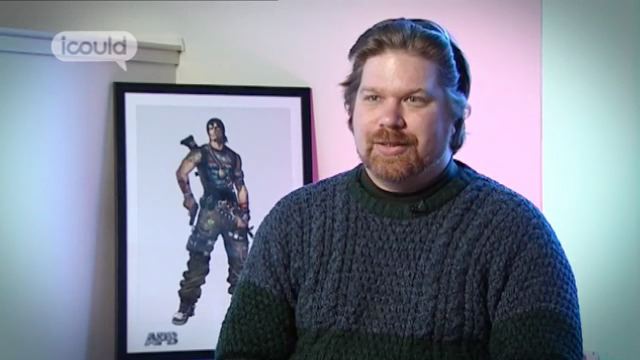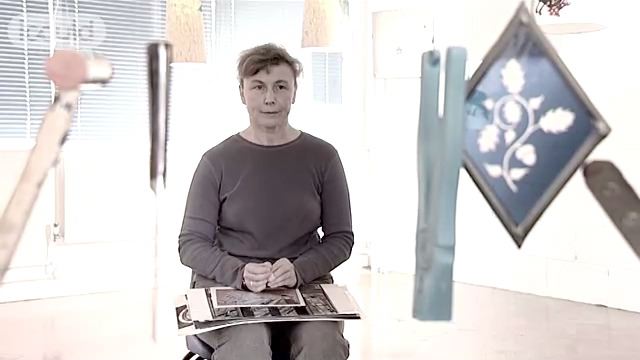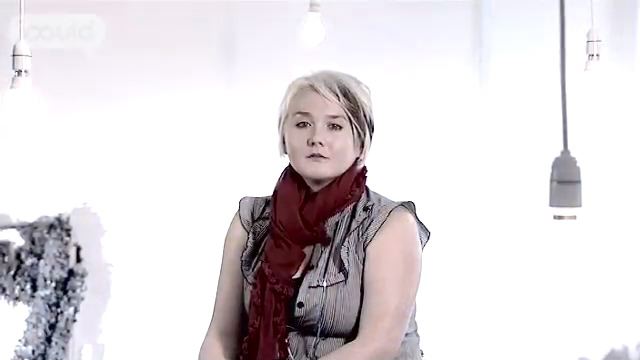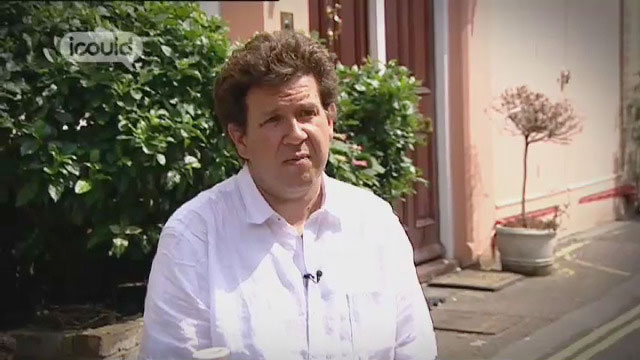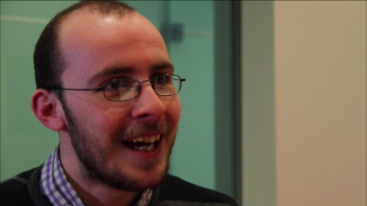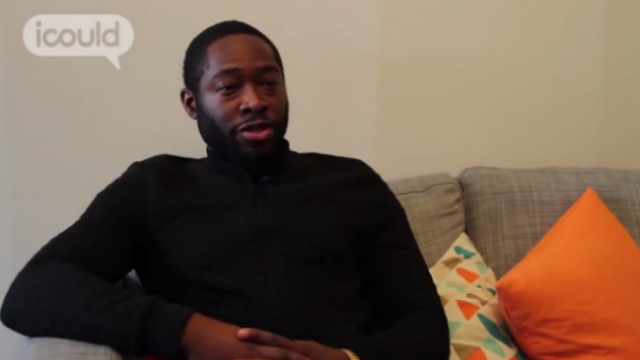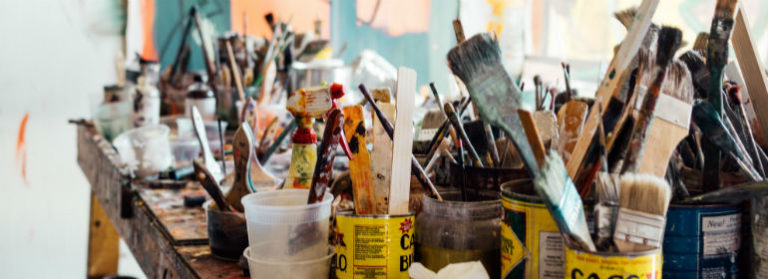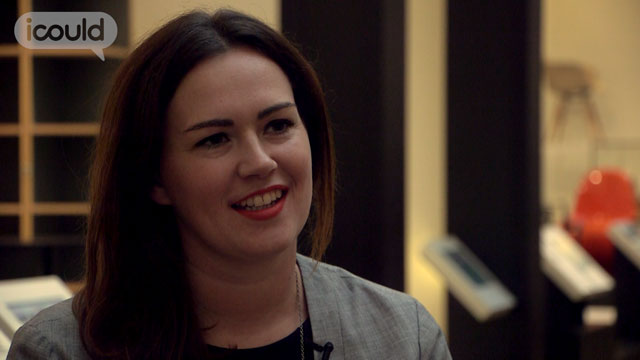Explore: Design and skilled crafts
Ceramic Artist
V&A
info Issues viewing the video?
| Time Code | INTERVIEW WITH MATT RAW |
| 00:02 | My name’s Matt Raw and I’m the ceramic artist in residence at the V&A and I’ll be in total here for six months. |
| 00:11 | The artist in residence is someone who exists at the museum. They don’t live here but they come in most days and work on an experimental body of work that they determine. There’s no final piece necessarily but it’s just a six months to develop as an artist and use the collection to inspire them. |
| 00:37 | My background is that I’m from Manchester and I went to school there and studied an art foundation course at Manchester Metropolitan University and then I did a course at university called wood, metal, ceramics and plastics. It was quite a broad materials-based degree course and that was at the University of Brighton and then after that, I moved back to Manchester and my dad’s an artist, so I spent a bit of time working with him and getting involved in other projects and some charity work and some other paid work in restaurants and stuff and then decided that I wanted to re-focus and continue my work with ceramics. So I did a residency in Denmark and I was six months spent in this strange little town, in a research centre and that was really crucial for me. After that I studied at the Royal College of Art and did a Masters there, which was just down the road in South Kensington and that kind of propelled me into a studio with other artists and a bit of a foothold in London an now I’m here, four years later. |
| 01:47 | So if GCSEs didn’t go to plan that doesn’t meet you’re not a good artist. If that’s what you want to do and you’re interested in that world and interested in creating things, stick with it and pursue it into sixth form because I got a B at GCSE Art. There were amazing drawers and painters there, which is fine, but I’m not a drawer and painter. I prefer using my hands and getting messy and being a sculptor. There wasn’t that facility for me, but that doesn’t mean I’m bad at art because I got a B at GCSE. I’m a professional now, I’ve got a masters, I’m at the &A, so don’t peak at school. |
| 02:28 | Advising any young artist, I’d first and foremost say, do an art foundation course. That’s the biggest piece of advice I could give because it allows you to make mistakes and experiment and get a little feel for what it is to be an art student. Because you can be at sixth form college on an art course, but you’re not an art student, you’re a sixth form student, which is an important step, but once you’re in an art foundation course, you’re surrounded by other young artists and those conversations and that environment that you’re in, is really crucial. Because when I was studying it was necessary to progress, but it’s not necessary and you can skip that and go straight on. So my advice would be, to not rush, take your time, do an art foundation course, make some mistakes, have fun and then do your degree. |
| 03:27 | There are workshops here that are available to schools, both at primary level and secondary level and the information can be found on-line. I myself run the graphics workshop for secondary school pupils and they come and we have an intense one day workshop into looking at alternative routes and aesthetics in graphics. So that’s one example of the workshops that happen here, but there are lots and lots of different practitioners that offer workshops and you can come with your teachers and your class and be involved in one day workshops here that you can then take back to school and feed into your work. |
| 04:14 | At the V&A residency at the moment, obviously surrounded by al this incredible work, that’s centuries old, all the skill and the creativity, it’s quite a lot of pressure to come in, so even at a stage where I’m starting to get a bit more developed, you’re still going to be worried and questioning yourself. It doesn’t stop as soon as you have a degree or a good project or something, so there’s still doubt in every single part of your existence. But, yeah, keep going, if that’s what you want to do. |
| 04:49 | END |
“Don’t peak at school.” Matt got a grade B in his art GCSE but went on to study at the Royal College of Art. He advises any young artist to take an art foundation course because it allows you “to make mistakes, experiment and get a little feel for what it is to be an art student.”
More information about Artists
Data powered by LMI For All
£42,640
average salary
The UK average salary is £29,813
40
average weekly hoursThere are 37.5 hours in the average working week
44%
male
56%
female
The UK workforce is 47% female and 53% male
Future employment
Future employment
Description
Artists create artistic works using appropriate techniques, materials and media; design artwork and illustrations; and restore damaged pieces of art.
Qualifications
No specific academic qualifications are required although a variety of vocational qualifications, degrees and postgraduate courses are available. Entry can be based upon portfolio work.
Tasks
- Conceives and develops ideas and ways of working for artistic composition
- Selects appropriate materials, medium and method
- Prepares sketches, scale drawings or colour schemes
- Builds up composition into finished work by carving, sculpting, etching, painting, engraving, drawing, etc.
- Approaches managers of galleries and exhibitions in order to get finished work displayed
- Uses artistic skills to restore damaged artworks
- Liaises with writers and publishers to produce book illustrations
- Markets and sells finished work directly to customers
- Produces works on commission basis for clients
Employment by region
Top 10 industries for this job
Libraries, etc
26950
Arts & entertainment
12264
Publishing activities
3006
Membership organisations
2845
Computer programming, etc
2307
Health
2088
Employment status
